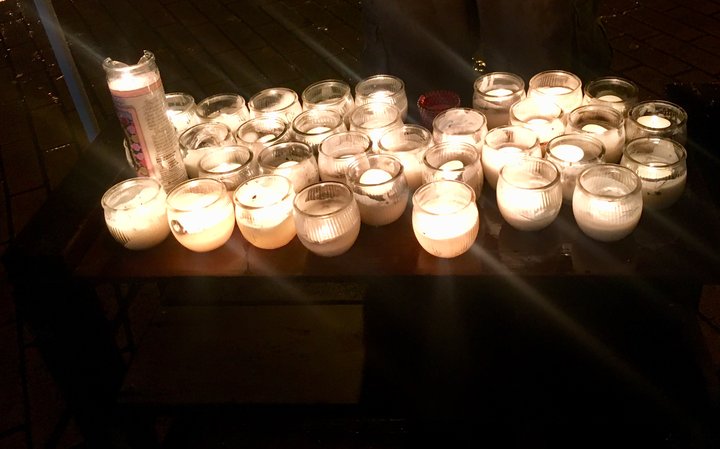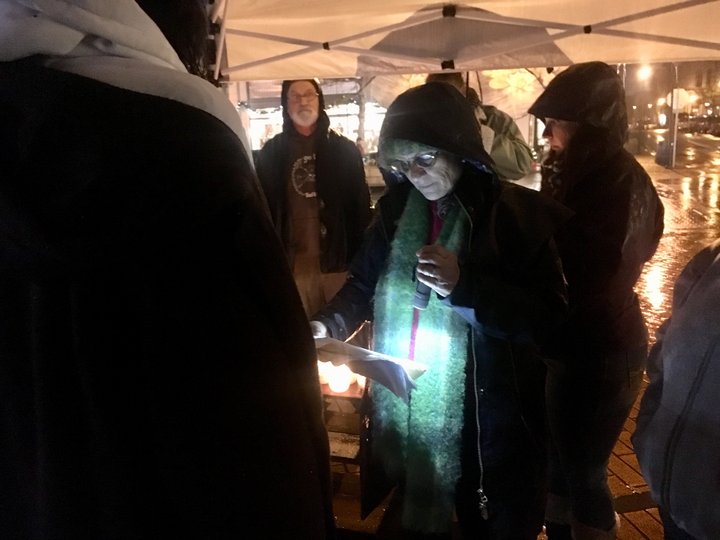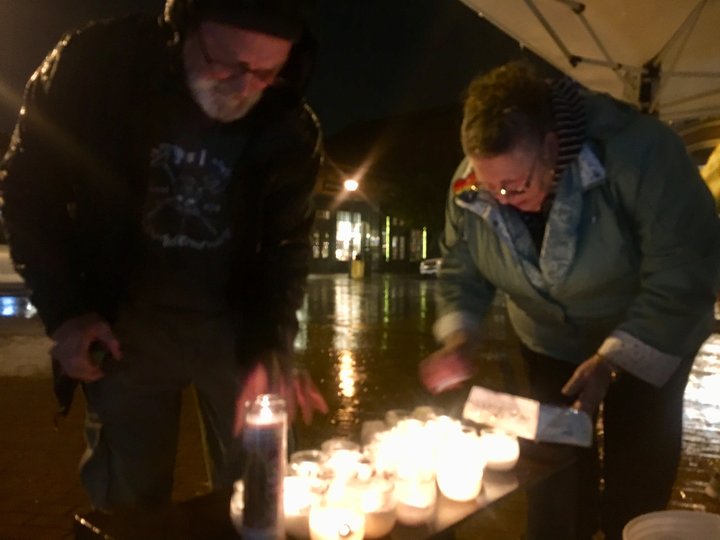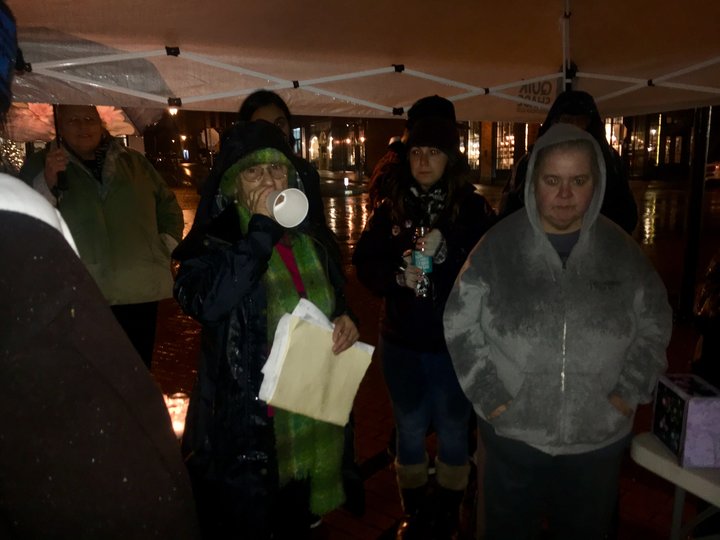
Candles to commemorate the homeless who died on the streets. Photos by Freddy Brewster
Through the rain and wind, around 20 members of the community gathered on Saturday night to pay respects to the people who died on the streets. Saturday was the winter solstice, which brings the official start of winter and the shortest day of the year. It also marks the National Homeless Persons’ Memorial Day.
This year’s event was put on by members of Affordable Homeless Housing Alternatives, the Humboldt Area Center for Harm Reduction and a handful of volunteers. They handed out warm food and hot drinks to about 50 people experiencing homelessness. They gave out sleeping bags, blankets, coats, jackets, sweatshirts and other articles of clothing.
Nezzie Wade and Debra Thomas are the co-founders of AHHA and have been helping to put on this event for the past 13 years. This year Wade read aloud the 38 names of the people who passed away on the streets of Humboldt from June 1, 2018 to Dec. 16, 2019. The names listed were only the people who died unsheltered and did not include the people experiencing homelessness that passed away in medical facilities.

Wade reading the list of names
“We need to honor the people that are in the struggle, the people that are out here in the streets,” Thomas said. “They are struggling across the nation, but they are really struggling here in Humboldt County because of a lack of affordable housing and shelter. I don’t think [the community] understands that people die out here.”
Over the past 13 years, Wade and Thomas have been keeping track of all the names of the people who have died on the streets, a number that is around 190 people. When asked if they could say something to the people who passed away on the streets, both Wade and Thomas said “I’m sorry.”
“The people out here face the same issues as everybody else, but their lives are complicated by having to just get from here to there and doing it without being a spectacle and publicly derided,” Wade said.
“I think too, that people don’t get that they have a story just like you and I. They come from all backgrounds,” Thomas continued.

John Calkins and Debra Thomas light candles for the vigil
The two women said they receive phone calls from parents and loved ones of people living on the streets. They call to see if the AHHA team has ran into their family members or friends and ask about their well being.
“We get to go home and shut the door, but these folks have to live their life in public and that’s really troubling and hard for them,” Thomas said. She continued by pointing out the need to change the public’s perception when it comes to homelessness. “We can’t seem to break the stigma and that’s what we really need to work on.”
Missing from last night’s event were any elected officials. No one from Eureka City Council showed up or the Humboldt County Board of Supervisors. Back in February, the Housing Trust Fund and Homelessness Solutions Committee released a report with 32 possible solutions to combat homelessness and one of the main barriers preventing the solutions was a lack of political will. The committee also found that around $4.5 million spent over a 5-year period would make a significant change in the homeless community. But for those on the frontline, it still seems like there isn’t the drive for change from the people in charge.
“We don’t have the political will to change this,” Wade said. “We need the will of the community to change because this issue is not going away.”

Wade reading off the names of people who died on the streets
At around 6:15 p.m., Wade began reading off the list of the people who have died on the streets. She read their name, the day they died, and paused for a brief moment after each one. After hearing a certain name, a woman broke down and began to cry. She shouted “Oh no, oh my god,” and ran into the rain. A friend of hers chased after and brought her back under the tent and out of the rain.
“How many times do we have to ask for emergency shelter,” the woman said through tears. “It feels like an eternity.”
As Wade concluded, she said the people on the list died for many different reasons. She said some of the causes listed include “natural causes, but they weren’t really natural causes,” Wade said.
She finished the evening by addressing the public and making a call to action.
“We need to work our asses off,” Wade said. “We need to convince our neighbors to make something happen.”
CLICK TO MANAGE